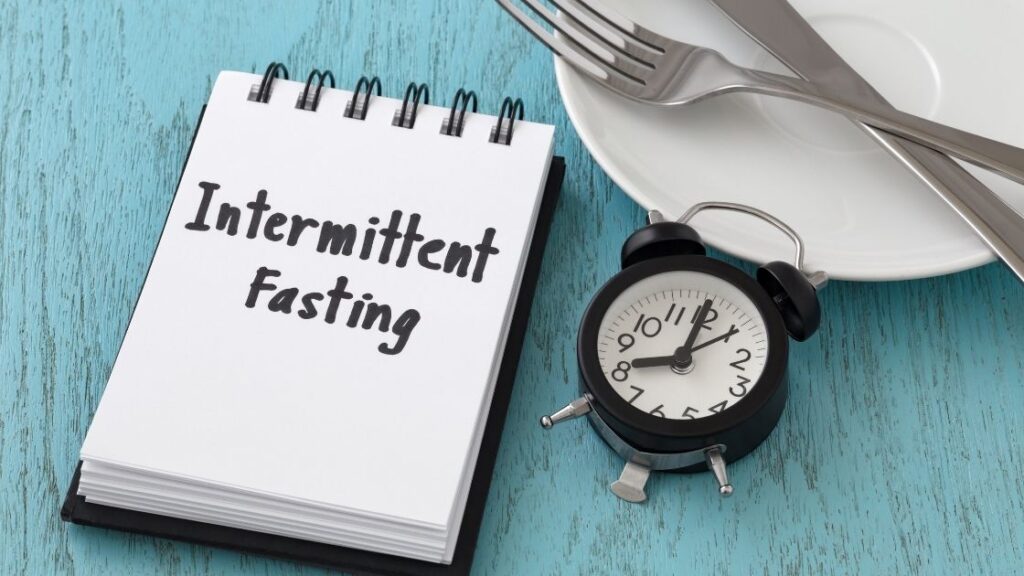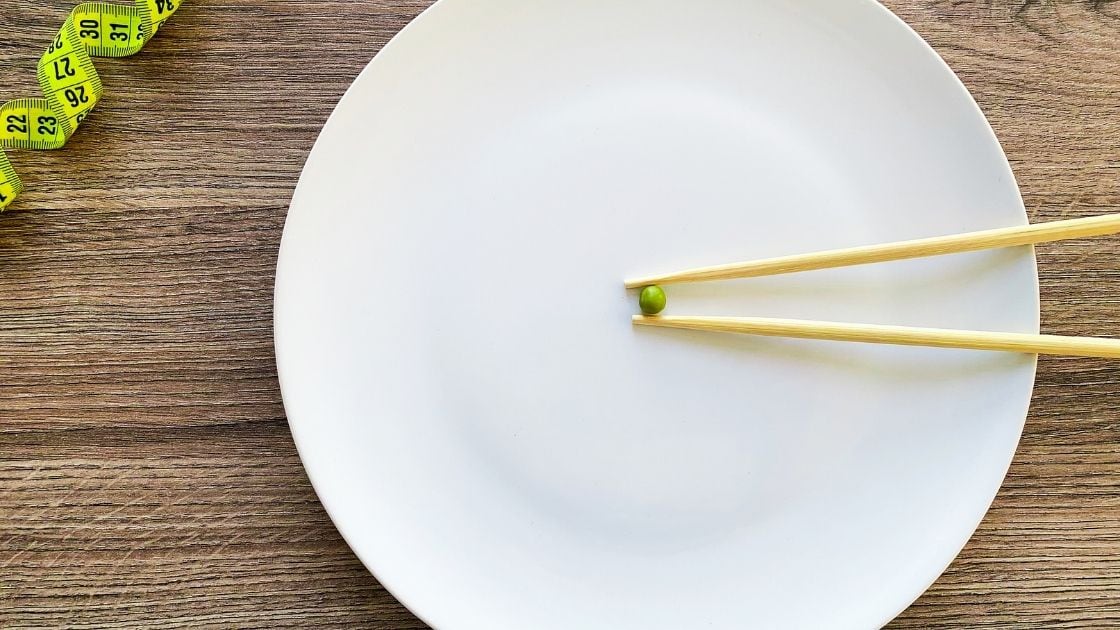- Starving for weight loss is not the healthiest way to lose weight
- Intermittent fasting is a healthier and more sustainable alternative to starvation
- Starving yourself can lead to a slower metabolic rate and decreased energy levels
- It can negatively impact your body’s essential functions, including hair and nail growth, immunity, digestion, and reproductive health
- It can harm your mental health and potentially lead to eating disorders
We have all been there, starving for weight loss just to shed some extra pounds.
Want to strut your stuff in swimwear?
Starve yourself before the vacation, right?
Wrong! Although it sometimes seems like the only way to lose body weight quickly and easily, it’s not the healthiest way.
There are a lot of negative effects involved if you are starving yourself.
We should need to know whether starving ourselves is bad or good.
Does it accelerate your weight loss efforts?
Or you are just trying to lose weight with your empty stomach, but you get only a lean body but not an effective weight decrease.
Simply put, starving for bad weight loss should be avoided at all costs.
You need food to survive and thrive – it is simple biology.
Certain nutrients and vitamins are required to get you through every day and can help you not to commit crimes against humanity.
That’s right; eating relaxes you.
Have you ever heard of comfort food?
All food is comfort food and will make you feel better than starvation ever will.
Weight loss without starving is possible; restrict calories and do regular exercise.
Read this guide for the ultimate stepping stone in discovering new ways of losing weight while staying healthy.
We will go deep into the opposing sides of starving for weight loss and the positives of intermittent fasting.
Difference Between Starving and Intermittent Fasting
If you are not familiar with the term ‘intermittent fasting,’ you’ll be forgiven for thinking it’s just a fancy way of starving yourself.
If you follow an intermittent fasting schedule with some dedication, you will be pleasantly surprised at how healthy you will feel while ”almost” starving yourself without depriving yourself completely.
In essence, you will be skipping meals here and there.
This fasting method is a healthy and sustainable practice to prevent weight gain without completely throwing your body into starvation mode.
The pattern in this type of diet involves going through different stages of eating and fasting.
For example, you can eat for 8 hours (not an 8-hour chocolate ice cream binge) and fast for 16 hours.
Your body begins to lose weight without starving yourself by doubling your fasting time with your eating time with an intermittent fasting schedule.

An intermittent fasting schedule can help you achieve weight loss without feeling depleted and lethargic.
It’s important, however, not to restrict your calorie intake too much when following this schedule.
Sticking with your daily calorie intake can work wonders this way.
You should not increase your calorie intake just because you are fasting.
Keep an eye on what you put in by simply changing from white to brown bread, providing you with enough calories to stick with a healthy and realistic intermittent fasting schedule.
Starvation is seen as a method of losing weight because it puts you through an extreme calorie deficiency.
Yes, by fasting at certain times of the week, you also go without food for short periods, but you get all the necessary nutrients before and after your mini-weight fast.
Calories may be the last thing a girl wants in her life, but it’s unfortunately needed for a healthy and sustainable weight loss regime.
Nutritional experts recommend a low-calorie diet, consuming at least 600 calories daily. Calorie intake should not be less than 450 and not more than 800.
In essence, this type of fasting loses a lot of weight and follows the same principles as starvation, but the difference lies in how often you eat.
With fasting, you will follow a healthy eating plan most of the week and fast, well, intermittently.
What happens to the body when in starvation mode
No, starvation is not a good thing. It is extremely unhealthy and puts your health at risk. While your body needs to be in a calorie deficit, you still need calories to function.
You can also shake a few extra calories through exercise without depriving yourself of essential nutrients.
Starving will help you to lose weight initially, but it’s not sustainable; if you are losing weight, you want to keep it that way.
If you are starving for weight loss, you will not be able to sustain a healthy weight loss program, and it is bad for weight loss.
Your body’s survival mode may adapt to stark calorie deficits, which pose extreme health risks.
With intermittent fasting, you can easily shed the desired weight without relying on fads and diet pills while keeping healthy and sane.
With starvation, you will be putting your body through the wringer.
This needless stress is dangerous not only to your physical health but also to your mental stability.
Choose and stick to a fasting schedule for a healthy and sustainable weight loss method without starving.
Your weight loss plan should include proper meal planning and counting calories per day, gain muscle mass, and lose fat.
If your weight loss goals can give you this answer, then you are on the right track and can continue to lose long-term weight.
Your Metabolism Slows Down
When you are not getting in any calories for an extended period, you begin to use stored body fat as a primary energy source and lean muscle and skeletal tissue as the second source.
Over a prolonged period, your body will start to respond to fewer calories by reducing your overall basal metabolic rate.
This happens with metabolic adaptation, which is your digestive system changing its normal way of thinking.
So eat less while on a weight loss journey.

The metabolic adaptation reduces your body’s ability to burn calories as efficiently as it used to and won’t preserve as much energy.
Energy is needed to get through daily activities and maintain a healthy mind and metabolism.
Adaptive thermogenesis can occur with an empty stomach for a long time.
As we have seen, starving for fat loss causes a slower metabolic rate and decreased energy intake, so you will feel tired, fatigued, and irritable.
Fatigue sets in when your body tries to prevent you from using up all your energy and will release hunger hormones to motivate you to consume food.
How your body tells you to eat to prevent you from using up all your energy is proof enough that weight loss without starvation is the only responsible way of losing weight.
One way this can be achieved is through healthy, scheduled fasting.
Furthermore, your body works hard to prevent further weight loss by slowing your metabolism even more.
This chain reaction will reinforce each starvation period as your body works harder to keep you healthy and alive.
Your Body Works Less Effectively
Since intermittent fasting is a safer and more responsible way of ”starving” your body for short periods, let’s take a look at what happens to your body.
Depending on the severity of how you are starving yourself and the number of calories you are getting into your system, your body will start to prioritize your most essential bodily functions.
Breathing, heart rate, and other bodily procedures are vital for survival.
In the state of starvation, you are putting yourself through an extremely dangerous process where the only thing you are gaining is deprivation of happiness and an unhealthy future.
The unhealthy state that starvation puts your body through is unnecessary! Have a look at this list to see what starvation does to your bodily functions;
- Hair and nail growth – An unhealthy lifestyle has many negative side effects. This includes brittle and weak nails and hair loss that no manicure or pedicure will fix.
- Immunity – With starvation comes a fragile immune system, making it difficult to heal from an infection or illness. Your body needs fuel to help fight against illness and infection.
- Digestion and hunger regulation – Stomach discomfort and bloating is almost always on the rise with starvation and will give you more intensified hunger.
- Reproductive health – With starvation, you are losing a lot of essential nutrients and vitamins that are needed to keep your reproductive organs healthy. By starving yourself, your menstrual cycle may change or ultimately stop.
- Skin health – By fasting, you still receive enough calories and nutrients to keep you looking radiant. With starvation, you will lose skin elasticity and may experience improper or delayed wound healing and premature aging.
- Bone health – Bone health and structure may be impaired by starvation as your bones lack the nutrients and minerals (like essential calcium) to support them.
The unhealthy state that you are putting your body through by starving to lose weight quickly will see your body fighting for your life.
Your body needs calories to function properly and will be working hard to restore your weight and health if it is not receiving the essential nutrients and calories.
May Harm Your Mental Health
Mental health is extremely important, especially with so many modern-day pressures.
Again, a healthy and balanced diet is the key to keeping your mental state intact.
Starvation and other harmful dieting behaviors can be an extremely negative factor to your mental well-being and should be one of the main concerns for why starving for weight loss is something you should never consider.
Starvation may even lead to an eating disorder and behaviors such as food restriction, excessive exercising, and an unhealthy obsession with weight and body size.

Prolonged starvation can also make you tethered on the brink of anorexia nervosa, bulimia nervosa, or binge eating disorders, seen as extremely unhealthy conditions caused only by starvation.
While we all want to look our best, we should also be focused on feeling our best.
A Better Way To Lose Weight Fast
There are many ways to lose weight responsibly while keeping your own well-being and health in check.
Feeling good should be at the top of your priority list over and above obtaining your perfect weight balance.
- Strength training – Strength training and a healthy diet can preserve and build muscle tissue during weight loss, giving you the perfect body you’ve always wanted.
- Protein – Protein is not just for gaining weight. Especially in a low-calorie diet, protein can be greatly beneficial to help you lose weight.
- Water – Drinking lots of water and canceling sugary drinks can lead to significant weight loss and a healthier lifestyle.
- Limitations – Limiting processed foods is a great way to gain more protein, fiber, and healthy fats, making you feel fuller for longer.
- Intermittent fasting– It is a perfect way to lose weight while being healthy and still getting in enough calories.

If you choose any of these weight loss methods, which are great for staying healthy while losing weight, you will immediately start noticing all the benefits of weight loss without starving.
Fasting on fixed days is one of the most beneficial ways towards fast-paced weight loss.
Starving yourself is bad if you do not follow the true starvation and calorie restriction. Instead of starving, you should focus on food intake and caloric food.
Besides this, to lose body fat, you can physically exercise and lift weights.
The concept of the starvation model is real if you eat enough high-calorie diet.
Avoid Starvation Diet – Fasting Is Your Friend
Weight loss is something a lot of us fantasize about – we think about it every day after every meal, drink, or after a night on the town.
Although feeling comfortable with your weight plays an important role in your emotional well-being, losing weight responsibly is also important.
Starving for weight loss should never be an option and should be avoided at all costs by choosing a healthy alternative.

Reinette Robbertze is a highly qualified professional in the health and nutrition industry, having completed both Journalism and Nutrition diplomas. With a remarkable portfolio of health blogs and magazine articles to her name, Reinette’s writing is fueled by her genuine passion for healthy living. Drawing on her academic background, Reinette delivers authentic and insightful information to her readers. Her engaging writing style, blended with personal anecdotes, creates an immersive experience that keeps readers engaged and informed. Keep following her work for the latest updates and informative articles on health and nutrition.









